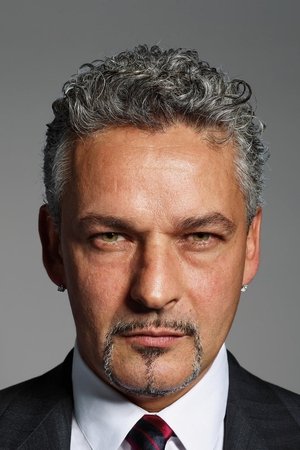Roberto Baggio (b. 1967)
Alias:
Il Divin Codino
Birthplace:
Caldogno, Vicenza, Veneto, Italy
Born:
February 18, 1967
Roberto Baggio (born 18 February 1967) is an Italian former professional footballer who mainly played as a second striker, or as an attacking midfielder, although he was capable of playing in several offensive positions. He is the former president of the technical sector of the Italian Football Federation. A technically gifted creative playmaker and set piece specialist, renowned for his curling free-kicks, dribbling skills, and goalscoring, Baggio is widely regarded as one of the greatest players of all time. In 1999, he came fourth in the FIFA Player of the Century internet poll, and was chosen on the FIFA World Cup Dream Team in 2002. In 1993, he was named FIFA World Player of the Year and won the Ballon d'Or. In 2004, he was named by Pelé in the FIFA 100, a list of the world's greatest living players. Baggio played for Italy in 56 matches, scoring 27 goals. He starred in the Italian team that finished third in the 1990 FIFA World Cup, scoring twice. At the 1994 World Cup, he led Italy to the final, scoring five goals, received the World Cup Silver Ball and was named in the World Cup All-Star Team. Although he was the star performer for Italy at the tournament, he missed the decisive penalty in the shootout of the final against Brazil. At the 1998 World Cup, he scored twice before Italy were eliminated by eventual champions France in the quarter-finals. Baggio is the only Italian to score in three World Cups. In 2002, Baggio became the first Italian player in over 50 years to score more than 300 career goals; he is one of the highest scoring Italians in all competitions with 318 goals. In 2004, during the final season of his career, Baggio became the first player in over 30 years to score 200 goals in Serie A, and is one of the highest goalscorers of all time in Serie A, with 205 goals. In 1990, he moved from Fiorentina to Juventus for a world record transfer fee. Baggio won two Serie A titles, a Coppa Italia, and a UEFA Cup, playing for seven different Italian clubs during his career (Vicenza, Fiorentina, Juventus, AC Milan, Bologna, Inter Milan, and Brescia). Baggio is known as Il Divin Codino ("The Divine Ponytail"), for the hairstyle he wore for most of his career, for his talent, and for his Buddhist beliefs. In 2002, Baggio was nominated Goodwill Ambassador of the Food and Agriculture Organization of the United Nations. In 2003, he was the inaugural winner of the Golden Foot award. In recognition of his human rights activism, he received the Man of Peace award from the Nobel Peace Prize Laureates in 2010. In 2011, he was the first footballer to be inducted into the Italian Football Hall of Fame. From Wikipedia, the free encyclopedia.






